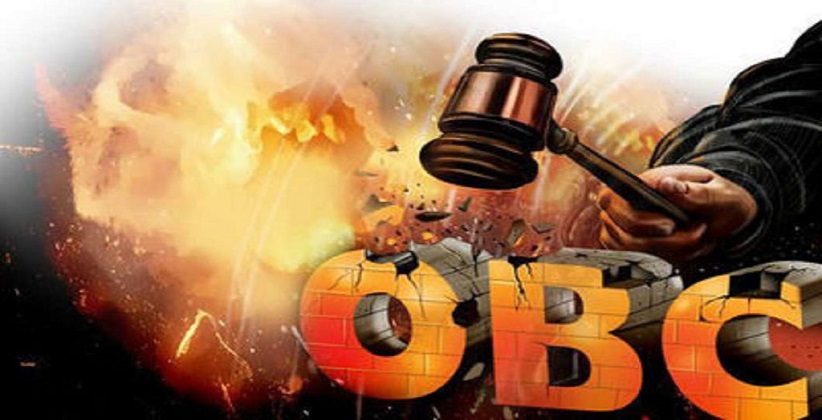The term 'backward classes' was first time used in the year 1919 by political leaders. It referred to a section of the population which are backward in a socio-economic sense rather than by caste. The term 'backward classes' covers the depressed classes, tribal and other backward classes (OBC's).
The constitution of India does not mention OBC's anywhere; it only specifies that special provisions must be made for the SCs and STs. Like under Article 15(4) regarding the prohibition of discrimination it says that "Nothing in this article shall prevent the State from making any special provision for the advancement of any socially and educationally backward classes of citizens or for the Scheduled Castes and the Scheduled Tribes". Again under Article 16 which provided equality of opportunity in matters of public employment, the clause 4 says that "Nothing in this article shall prevent the State from making any provision for the reservation of appointments or posts in favor of any backward class of citizens which, in the opinion of the State, is not adequately represented in the services under the State".
Thus it created confusion as to what comprises backward classes. To remove this uncertainty, The Government of India appointed a commission under the chairmanship of B.P Mandal in 1978. The commission submitted its report in 1980 and stated that in case a caste as a whole is found socially and educationally backwards then reservation could be provided to the entire caste. One such recent example is when the Supreme Court accepted the writ petition for recognizing all farmers as Other Backward Classes, walking in the footsteps of the Mandal Commission.
Since then the reservation is no more related to the upliftment of the oppressed. Instead, it got related to vote bank politics. But now the Government has awakened from the deep slumber and has evolved the criteria for the exclusion of socially advanced persons (Creamy layer) from the benefits of reservation available to OBC's so that it could genuinely help the economically deprived individuals.
OBC Certificate
The certificate of OBC consist of two parts-
1. The concerned person belongs to a community listed as OBC.
2. The candidates do not fall in the creamy layer.
As per the Office Memorandum dated 14th October 2008 the annual income limit has been raised from Rs. 2.5 Lakh to Rs. 4.5 Lakh per annum to determine the creamy layer amongst the OBC's.
The Government of India Ministry of Personnel also issued certain clarifications in Office Memorandum dated 14th October 2004 to determine the creamy layer, they are:-
1. The income from the salaries and income from the agricultural land shall not be taken into account.
2. The creamy layer status of a candidate is determined on the basis of the status of his parents.
Who are covered under Creamy layer of OBC?
1. Parents, both of whom are directly recruited Class1/Group A officer.
2. Parents, either of whom is a directly recruited Class1/Group A officer.
3. Parents, both of whom are directly recruited Class1/Group A officer, but one of them dies or suffers permanent incapacitation.
4. Parents, either of whom is a directly recruited Class1/Group A officer and such parent dies or suffers permanent incapacitation, and before such death or such incapacitation has had the benefit of employment in any International Organization for a period of not less than 5 years.
5. Parents, both of whom are directly recruited Class1/Group A officer and both of them dies or suffers permanent incapacitation and before such death or such incapacitation of the both, either of them has had the benefit of employment in any International Organization for a period of not less than 5 years.
6. Parents both of whom are directly recruited Class II/ Group B officers.
7. Parents of whom only the husband is a directly recruited Class II/ Group B officer, and he gets into Class I/ Group A at the age of 40 or earlier.
8. Parents, both of whom are directly recruited Class II/ Group B officers and one of them dies or suffers permanent incapacitation, and either of them has had the benefit of employment in any International Organization for a period of not less than 5 years.
9. Parents of whom the husband is a Class I/ Group A officer and the wife is a directly recruited Class II/ Group B officer and the wife dies, or suffers permanent incapacitation; and
10. Parents, of whom wife is a Class I/ Group A officer and the husband is a directly recruited Class II/Group B officer and the husband dies or suffers permanent incapacitation.









